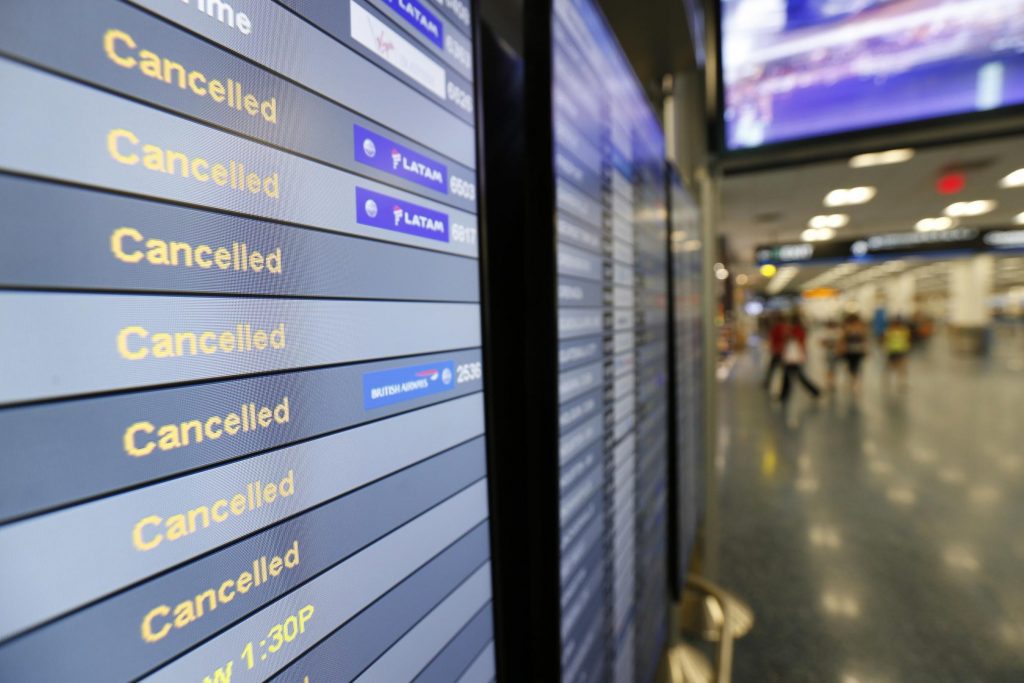Skift Take
Some airlines will not be happy that Kayak has lent its credibility and, in effect, its customer base, to startups that specialize in travel claims compensation. The claims cost airlines money. But Kayak still likes doing things a bit different from the other global online players.
Consumer laws and airline policies often entitle passengers to receive compensation from carriers when flights experience major delays or cancellations. But few jilted passengers file the paperwork to claim what they deserve.
Enter, Kayak, the travel price-comparison search engine. Quietly for the past few months, it has been using its marketing heft to let consumers know they may be able to either receive cash or vouchers redeemable for future travel.
When a traveler’s flight has been disrupted, Kayak sends an email notification that says, “Good news: You could get compensation.” It then encourages the traveler to try one of two claim compensation firms — AirHelp or Service — to process their claim quickly.
Since November 2017, if the flights are covered by European consumer regulations, the user is referred to AirHelp, which has a speciality in filing cases in Europe even though it can also file claims in the U.S. and elsewhere.
Since March 2018, if the Kayak user is based in the U.S., he or she is instead invited to try Service, which has a specialty in filing claims with North American airlines even though it can also file claims in Europe and elsewhere.
AirHelp and Service only charge a Kayak customer if the case is successful by taking a cut of the reward. If, say, Service successfully gets an airline to give a customer a voucher for future travel worth, say, $1,200, the startup will charge 30 percent of that value to the user’s credit card.
Kayak isn’t specifying the terms of the deals, but it’s a safe bet that the company receives what’s effectively a finder’s fee from Service and AirHelp.
Kayak only sends the messages to people who buy flights using its facilitated booking tool, Book on Kayak. Any travelers who book a domestic flight via Book on Kayak and who experience a flight delay of more than 90 minutes or a flight cancellation will receive a message from the company.
The company doesn’t share personally identifiable data with the startups, who must ask the consumers directly to provide information and either bank accounts or credit card numbers to process the claims.
Service obtains flight data from OAG, the provider of flight status and schedule information formerly known as Official Airline Guide. Service, in turn, alerts Kayak to the flights that have been disrupted. Kayak, in turn, notifies users.
Possible Turbulence
The move has a potential to prompt industry pushback.
In Europe, where regulations are more stringent, airlines complain that they’re paying more than they can afford in compensation, and they may not appreciate Kayak helping to increase the payouts.
Facilitated booking is currently available for many of the airlines Kayak sells, but not for all of them. So not every airline will be affected.
“Offering our users the opportunity to easily get compensated for flight delays or cancellations is a great benefit,” said Susan Lee, vice president of North American commercial partnerships, at Kayak.
U.S. Versus Europe
In the U.S., consumer laws are comparatively lax, but many airlines have policies that offer some levels of compensation in case of flight disruption.
Since its launch five years ago, AirHelp has processed claims on behalf of 5 million consumers, while taking a cut of the refunds. Service, which has offered compensation claims since March 2017, is still growing.
The companies won the deals with Kayak, beating out rival claims advisors like Flightright, ClaimCompass.eu, and Refund.me.
Smaller deals have been done by other claims advisors before, however. For example, some small online travel agencies in Europe connect with ClaimCompass, which finds eligible flights and sends notifications to users. Some small travel metasearch companies have co-branded integrations, too.
In the past, other companies have attempted variations on this process. Yapta has offered flight-tracking and hotel-rate tracking services for years, but not claims compensation. Ditto for Tingo, a service owned by TripAdvisor.
The conventional wisdom is that, in the U.S., there is not enough compensation on offer to be worth the hassle of filing a claim. Service’s CEO Michael Schneider said, “On average we find over $300 sitting in a frequent travelers inbox.” AirHelp, which disproportionately focuses on Europe, sees an average of about $700.
The European average may rise soon. In April, the European Court of Justice ruled that airlines must also honor claims from passengers when the reason for disruption was a strike by airline staff. So the wave of claims that carriers face will likely grow further.
AirHelp is the largest startup in the claims processing field, having raised more than $12 million in funding, hired hundreds of employees, and processed the most claims.
For Service — which began providing claims processing less than a year ago and has only raised $5.1 million in seed funding, led by Founders Fund — landing a deal with a company that belongs to Booking Holdings is a bit like going to travel startup heaven because mere mortals rarely get to breathe such rarefied air. The company is working on deals with travel management companies, other online travel companies, and its direct-to consumer offering — for which it claims it has about 100,000 customers so far.
The Daily Newsletter
Our daily coverage of the global travel industry. Written by editors and analysts from across Skift’s brands.
Have a confidential tip for Skift? Get in touch
Tags: delays, flight cancellations, flight delays, kayak, metasearch, Service
Photo credit: This photo shows a monitor listing canceled flights at Miami International Airport in Miami in early 2017, when airlines canceled many flights due to hurricanes. Wilfredo Lee / Associated Press
